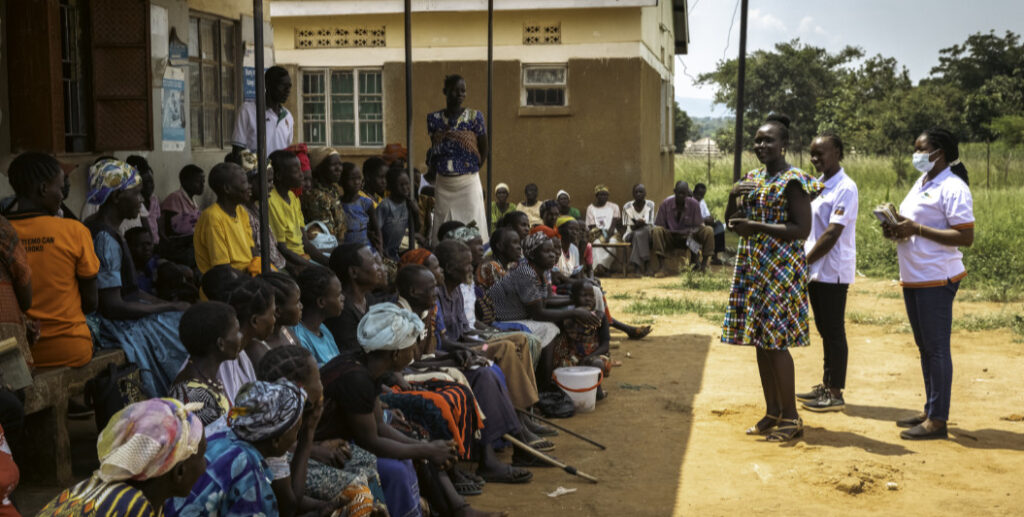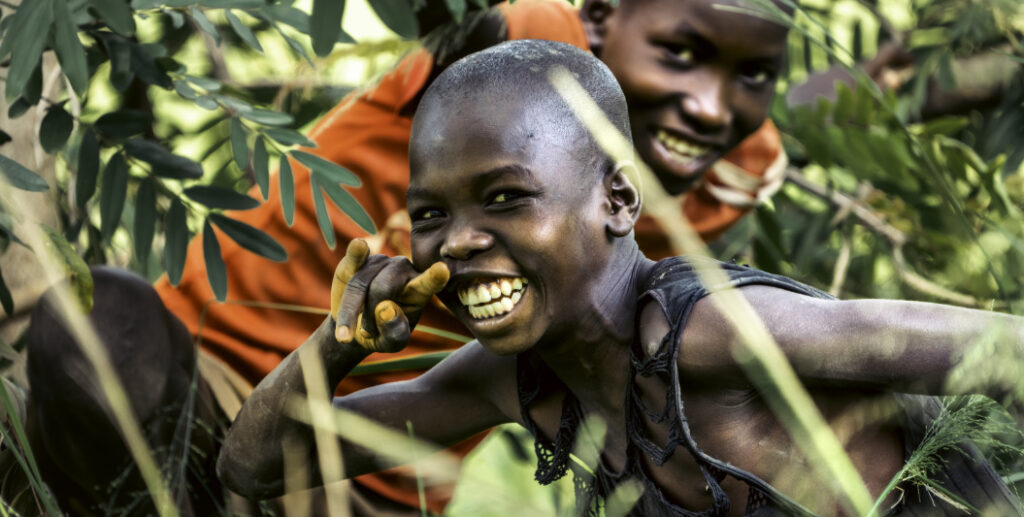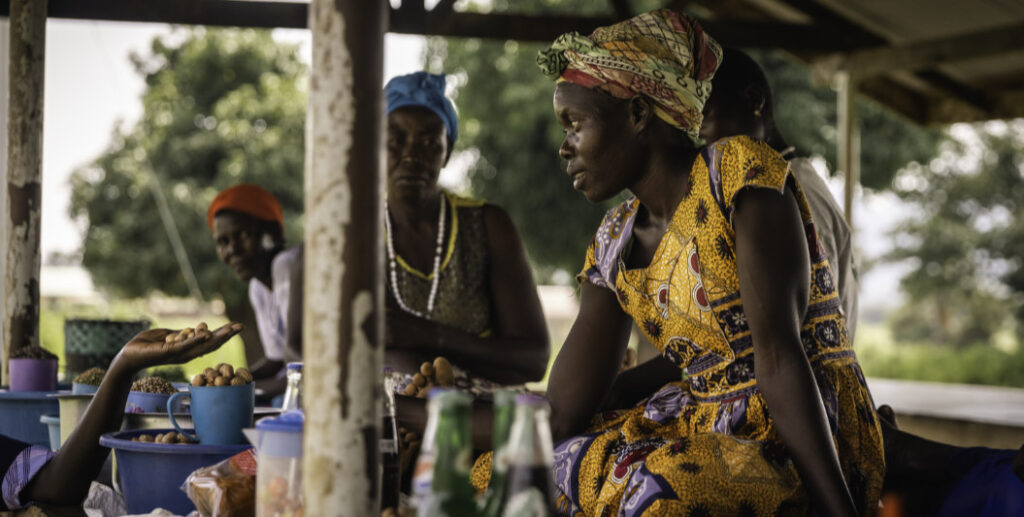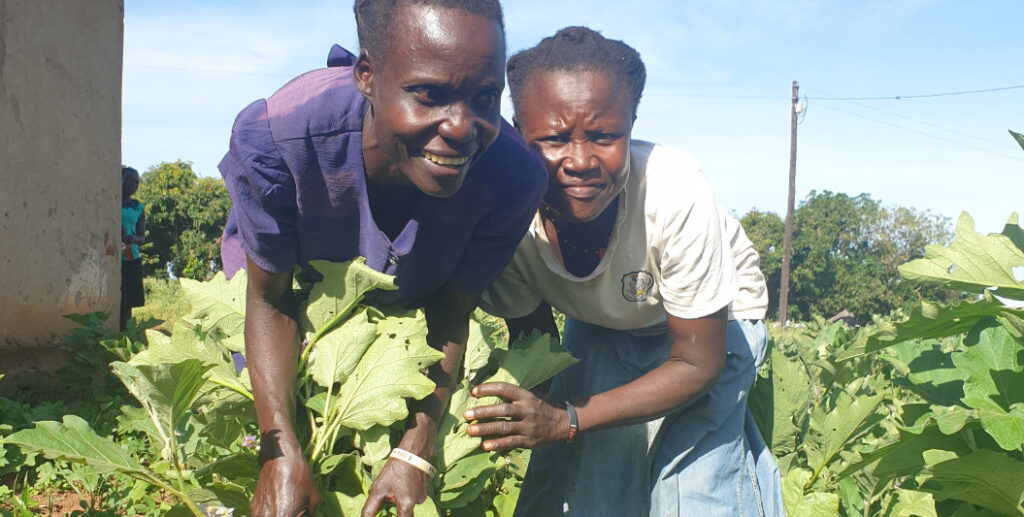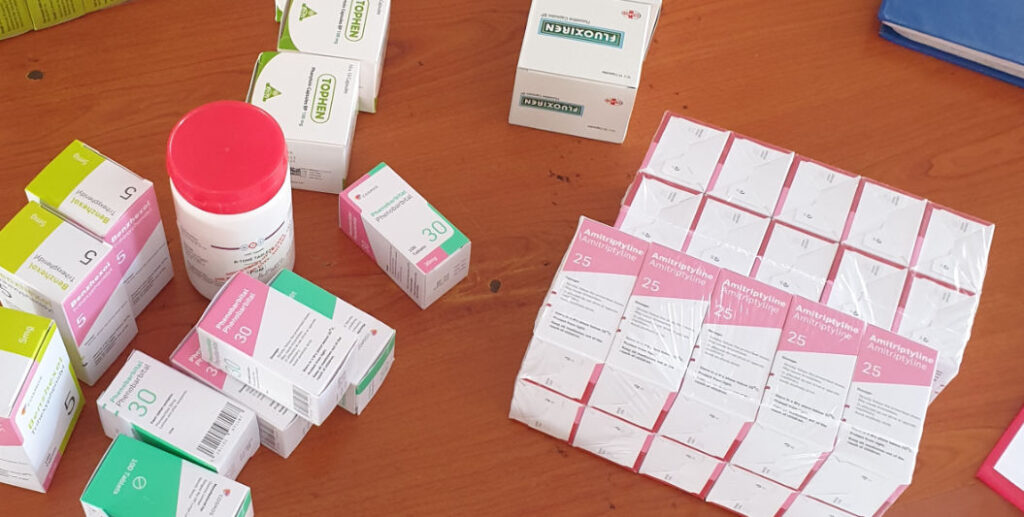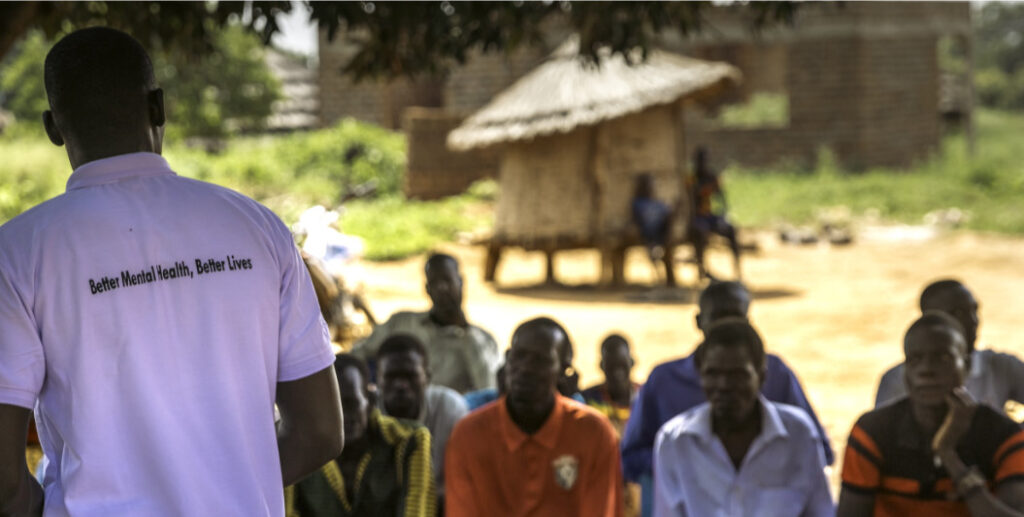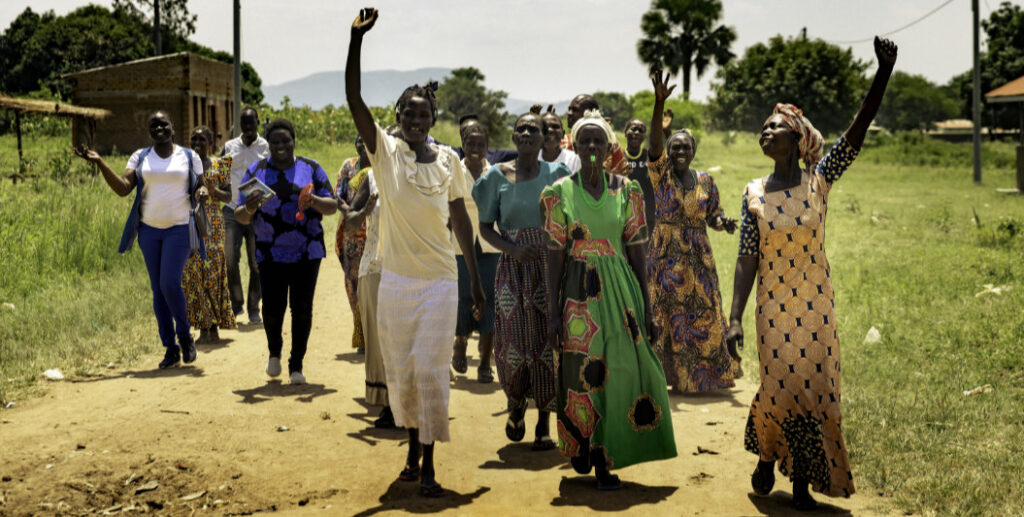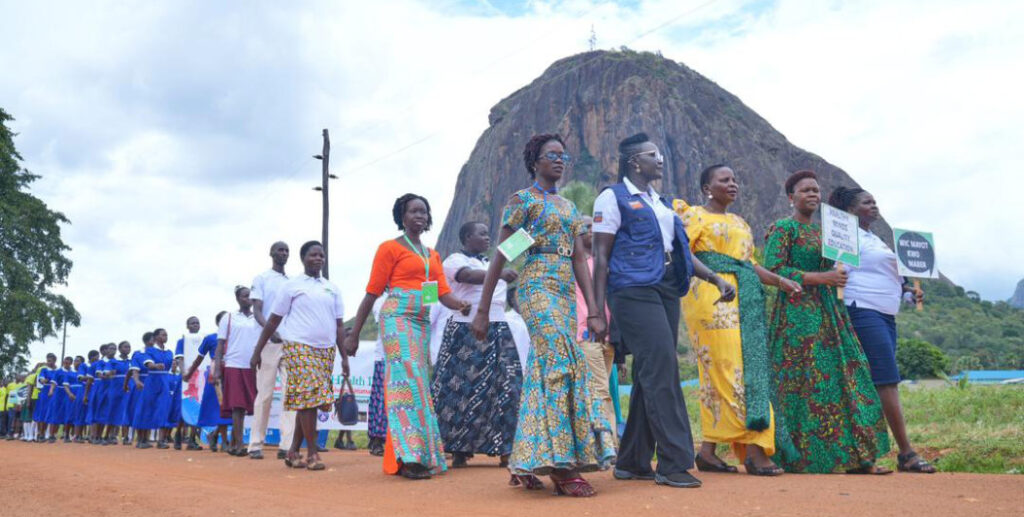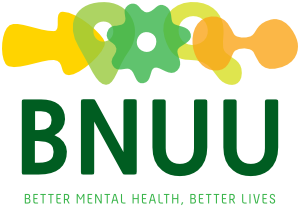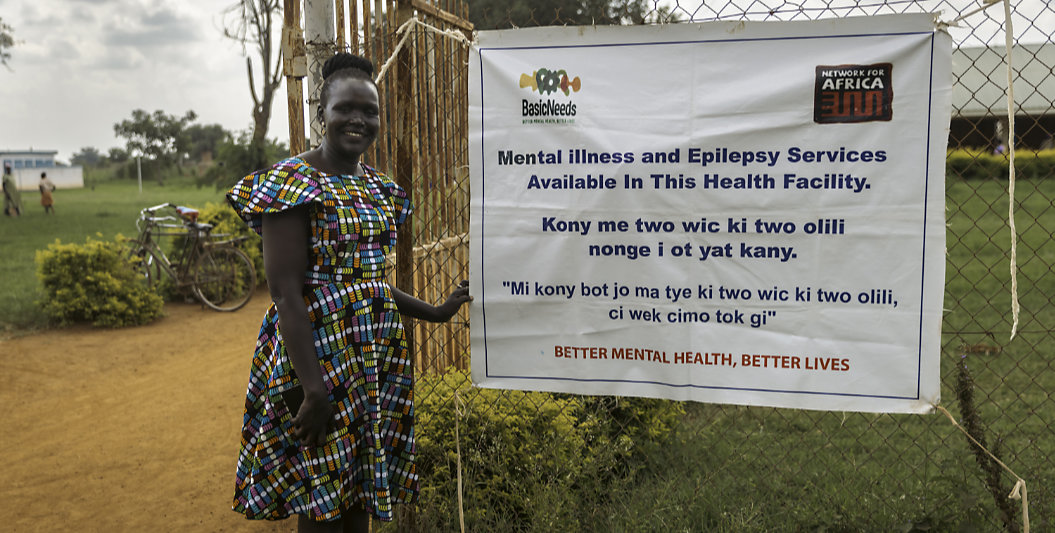
-
Banner photo credit: Simone Fior
BNUU’s goal is that people with mental illness/epilepsy and their caregivers in northern Uganda can enjoy freedom from mental illness and poverty. Its strategic objectives reflect this goal and are:
- To increase access to community based mental health services in Agago, Pader and Abim districts.
- To strengthen the capacity of stakeholders to invest in, develop, coordinate and deliver mental health services.
- To empower people with mental illness/epilepsy and their caregivers to demand better mental health services, and advocate for their rights and inclusion in government services.
- To improve the resilience of people with mental illness/epilepsy and their caregivers through sustainable economic empowerment.
- To strengthen mental health research and opportunities for collaboration.
Mental Health and Wellbeing of Young People
Agago District, northern Uganda
March 2023 – February 2025
BNUU has received support from Grand Challenges Canada who is funded by the Government of Canada to implement a 2-year programme to improve mental health services for young people in northern Uganda. BNUU will adopt a stepped care model to deliver its mental health services in schools, comprising a ladder of interventions from the least to the most intensive, matched to individual needs. Through training, raising awareness and advocacy, the programme will also increase understanding of mental illness, reduce stigma and empower young people affected by mental ill health so they can take control of their lives.
Network for Africa will provide support with strategy, reporting, monitoring and evaluation and safeguarding.
Wic Ma Yot Kwo Maber (Healthy Minds, Good Lives)
Agago District, northern Uganda
March 2022 – February 2025
BNUU is working in partnership with Network for Africa and Fondation d’Harcourt to implement a three-year project to improve mental health services in Lapono and and Adilang sub-counties in Agago District, increasing the number sub-counties receiving mental health support from four to six. Through mental health clinics, training, raising awareness and advocacy, the project will reduce stigma, increase understanding of mental illness and empower sufferers so they can take control of their lives.
Stay up to date with our work
Strengthening Mental Health Provision and Providing Livelihood Support to People with Mental Disorders/Epilepsy
agago district
October 2019 – DECEMBER 2022
BNUU is working in partnership with Network for Africa, the National Lottery Community Fund and the Charles Hayward Foundation to provide mental health services and livelihood support to 560 people with mental disorders/epilepsy and their caregivers. This will enable them to earn a living from small income generating businesses that will lift them out of poverty, provide them with enough income to pay for any necessary medication (to avoid relapses) and reintegrate them into their communities.
Crisis of Mental Health Medicines in Uganda
agago district
November 2021 – Present
BNUU is raising funds for this project through Global Giving. Its purpose is to provide a reserve of mental health medicines to the community ‘drug bank’, as well as seed capital to start self-help groups’ ‘drug bank’ savings schemes. ‘Drug banks’ are an initiative where patients and caregivers contribute a fixed amount of money monthly so that they are able to buy mental health medicines if they are in short supply in health centres.
From November 2021 to January 2022 BNUU team held meetings with community drug bank management committees to identify mental health medicines that are in short supply, and procured and distributed a total of 370 packs (37,000 pills) of mental health medicines (antipsychotic and antiepileptic medicines) to community drug banks in four participating health centres. A total of 540 people are projected to benefit from this initiative.
Stakeholders’ feedback:
Vegetable Gardens For People With Mental Disorders/Epilepsy
AGAGO DISTRICT
September 2021 – Present
Covid-19 has hit the participants of our community mental health program. Many households don’t have enough food to eat, yet eating regularly and well is crucial if you are taking anti-psychotic or epilepsy medication. In order to mitigate further food shortages, we decided to support our clients’ families with vegetable gardens.
With the help of a crowdfunding page and a grant from the Kenneth Miller Trust, Network for Africa has been able to provide funds to help our participants create a simple, but sustainable solution, growing beans and vegetables seeds that can be harvested in their gardens. The aim is to prevent families from going hungry in any future lockdowns and to give our participants enough to feed their families, with any extra being sold locally to generate some additional income. We also provided extra soap and handwashing facilities so that our clients can meet in safety. This is helping some 250 families.
Providing Life Changing Support to People with Mental Health Issues
Agago District
december 2017 – November 2020
BNUU implemented a Comic Relief funded three-year programme in four areas of Agago District, Northern Uganda which had previously had no mental health provision in partnership with Network for Africa. Starting in December 2017, this new programme strengthened local mental health provision by working with, and developing, existing health structures. Directly benefiting 3,466 people (1,824 with mental disorders and 1,642 of their carers) through counselling, referral and treatment, it also included an extensive training programme for project staff, village health teams, local councillors, health centre staff, and key community leaders – building knowledge, raising awareness and ensuring long-term sustainability. The programme followed the World Health Organisation’s (WHO) Mental Health Gap Action Plan (mhGAP) for mental health provision in low-resource settings. In addition, beneficiaries formed self-help groups in order to advocate for better mental health provision, raise the profile of mental illness and work together to start income generating livelihoods.

